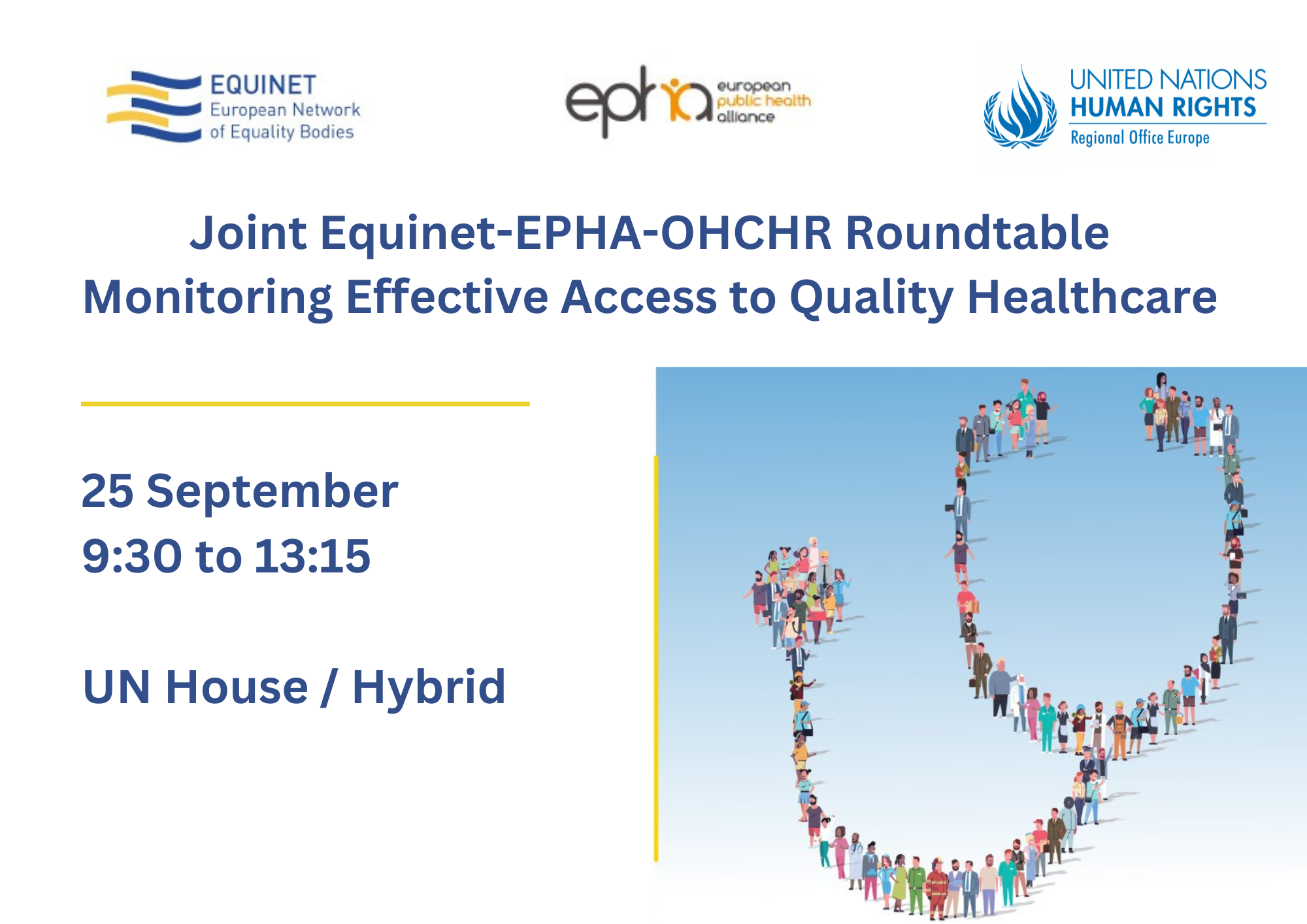Joint Equinet-EPHA-OHCHR Roundtable on “Monitoring Effective Access to Quality Healthcare”
25 September, 9:30 to 13:15 CET, U.N. House in Brussels/Zoom
25 Sep 24
The Racial Equality Directive prohibits direct and indirect discrimination on the grounds of racial or ethnic origin across different areas including healthcare. Despite the advanced legal framework against discrimination, inequalities in access to healthcare persist and legislation needs to be backed up with further actions. According to the EU Action Plan Against Racism, the COVID-19 crisis brought the consequences of existing health inequalities suffered by people with a minority racial or ethnic background into the spotlight as well as underlined that racism can also affect people's mental health. Likewise, the EU Roma Strategic Framework for equality, inclusion and participation for 2020 - 2030 pointed out the significant life expectancy gap at birth between the general population and Roma people, specifically 10.4 years for Roma women and 10.2 years for Roma men. The current importance of this topic is also emphasized at the international level. This is the case of the Committee on the Elimination of Racial Discrimination, which General Recommendation N° 37 on racial discrimination in the enjoyment of the right to health identify common challenges and provides guidance on measures to address them, in line with the ICERD.
Equinet, EPHA and the UN OHCHR are organizing a roundtable to explore the inequalities and experiences of discrimination of racialised communities with a focus on monitoring and reporting on racialised communities’ access to healthcare, as well as to discuss the role Equality Bodies may play in collaborating with CSOs and National Roma Contact Points (NRCPs) in ensuring equal access to healthcare.
OBJECTIVES
Identify challenges, showcase and disseminate knowledge about specific and potentially replicable activities of Equality Bodies and relevant stakeholders in addressing health discrimination and inequalities of racialised communities and in particular Roma people.

